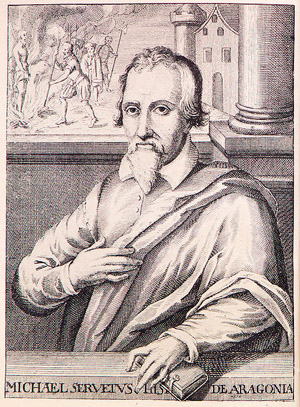Conference First to Examine History of Unbelief

As religion and faith continue to be on the forefront of our nation’s politics and current events, one conference will examine another perspective: unbelief.
Co-sponsored by SDSU, “Toward a Reasonable World: The Western Heritage of Humanism, Skepticism, and Freethought” takes place Sept. 16–18, 2011, and will bring together scholars from the United States, United Kingdom and Canada to examine the roots of contemporary unbelief.
Unbelief on the rise
Unbelief is defined as a lack of belief or faith, especially in religious matters. It encompasses a variety of movements and philosophies, such as atheism, skepticism, rational religion, agnosticism, humanism, secularism and freethought. About 15% of all Americans are not affiliated with any religion, and 5 percent of all Americans say they do not believe in a god or universal spirit.
“Religious intolerance is on the rise in the United States,” according to Rebecca Moore, chair of San Diego State’s classics and humanities department, “so a conference that looks at the history of rationalist reactions to intolerance is very timely. This is the first conference to look at the history and roots of unbelief, and it will answer the question, ‘how did we get to where we are today?’”
500th anniversary of Servetus
The conference is timed to coincide with the 500th anniversary of the birth of Michael Servetus, considered the modern father of Unitarianism. Servetus, a Spanish physician, mathematician, translator, and theologian was burned at the stake in 1533 for denying the Christian doctrine of the Trinity and the divinity of Jesus.
Robert Tapp, emeritus professor of humanities and religious studies at the University of Minnesota and one of the conference organizers, observes that, “Even while we study humanity’s religions, they keep adapting—as do their critics. In free societies this can be a healthy process and progress.”
Conference highlights
Conference highlights include talks by Annie Laurie Gaylor, co-president of the Freedom From Religion Foundation, and S. T. Joshi, author of The Unbelievers: The Evolution of Modern Atheism. The keynote address by Ronald L. Numbers, Hilldale Professor of the History of Science and Medicine at the University of Wisconsin Madison, will examine the contribution that Creationism has made to the rise of modern Unbelief.
The conference is co-sponsored by SDSU’s Department of Classics and Humanities, Department of Religious Studies, Department of Philosophy and Institute for Ethics and Public Affairs, as well as by the Institute for the Study of American Religion at Santa Barbara. It is underwritten in part by the James Hervey Johnson Charitable Educational Trust.
Register for the conference
Registration for the three-day conference costs $35. Early, online registration is encouraged as space is limited. A complete schedule, with biographies about presenters and registration information, is available online.
For more information, contact Rebecca Moore at (619) 594-6252 or [email protected].



